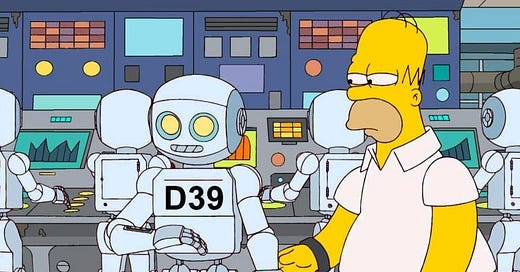Normal people worry about technological unemployment. Economists keep telling them to relax, but to little avail. You can’t trust a coven of eggheads, can you?
Rather than rehash the textbook arguments, let me propose an easy way for the public to test its own understanding.
Step 1: Create a graph where the x-axis runs from 1948 to the present, and the y-axis shows the overall level of technology.
Step 2: Sketch whatever you personally believe about the evolution of the overall level of technology during this period. Do NOT proceed to Step 3 until you have finished Step 2.
Step 3: Compare your graph to the actual history of U.S. unemployment from 1948-present. I repeat: Do not peek until you’ve completed Step 2.
Step 4: If technology were an important cause of unemployment, the two graphs should look a lot alike: more tech, more unemployment. (If you favor the more sophisticated theory that it’s tech growth, not tech level, that raises unemployment, eyeball that instead).
Step 5: So what do your own eyes tell you?
HT: Inspired by Ben Frey.
The post appeared first on Econlib.

















The problem in BCs analysis comes from lumping "technology" into a single category. Medical, communication, transport, physical-labor replacement, human computation/tabulation replacement certainty eliminates SOME jobs, but those past tech waves have generally reduced, but not eliminated human effort in production generally. What if instead we have ZERO humans needed, for agriculture, mining, transport, storage, processing, medical treatment & diagnosis ?
Some problems are ... How do we distribute goods without jobs ? Why should any producer make product for "customers" who do not/cannot pay ?
I anticipate that 'lights-out factories" will expand, but in balance with transfer of employment to "service" jobs. Can we have a society based only on service jobs ?
most who claim about Technological unemployment will say you will find it in the Labor force participation rate and not the unemployment rate